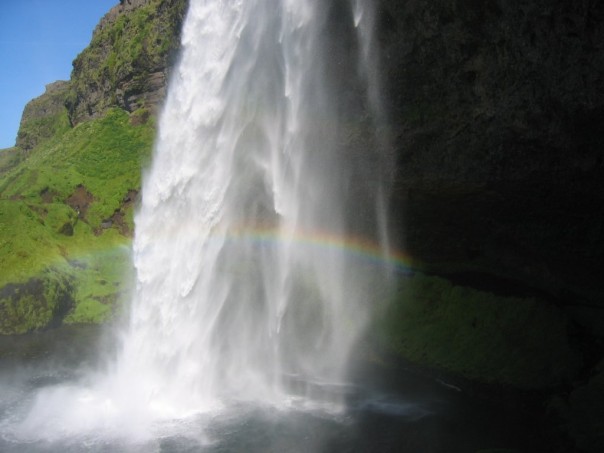About Icelandic at Cambridge
Why Modern Icelandic?
Modern Icelandic, a relative of the Scandinavian languages, is of particular interest to students of Old Norse as its grammar has remained virtually unchanged since the thirteenth century when many of the famous medieval sagas were composed. The vocabulary is also highly conservative since the Icelanders largely eschew loanwords, preferring to create new words from native elements. Yet despite its archaic features, the language is triumphantly alive today: as the national language of Iceland’s 340,000 inhabitants, it plays a fundamental  role in the country’s vibrant culture, featuring in books, newspapers, films and music, as well as having a strong presence on the internet.
role in the country’s vibrant culture, featuring in books, newspapers, films and music, as well as having a strong presence on the internet.
Icelandic classes in Cambridge
Some students choose to learn Icelandic to support their Old Norse studies, others because they are fascinated by languages, interested in modern Icelandic culture or wish to visit the country and use the language for practical purposes. To cater for these different interests, we aim to strike a balance in the classes between teaching grammar and providing practice in speaking, listening and reading, as well as introducing students to aspects of Icelandic culture.
About the Teachers
Elvar Wang Atlason (teacher for Michaelmas 2024) is a Mathematics PhD student at UCL studying differential geometry. He graduated with a BA MMath degree from Cambridge in 2023. Elvar lived in Iceland until he was 20 years old and often goes back home. He speaks Icelandic to his father, Faroese to his mother, Danish to his grandmother, and English to his dog. Before moving to the UK, Elvar taught Faroese to elementary school children of Faroese descent, and physics at Reykjavík Junior College (MR). While Elvar’s main interest is mathematics, he also likes solving puzzles, reading, and enjoying the outdoors.
To contact Elvar, please email elvar.atlason.23@ucl.ac.uk.
Oddur Snorrason (teacher for Lent 2025) is a PhD student in Linguistics at Queen Mary University of London, interested in Formal Syntax. He mainly works with his native language, Icelandic, as well as Faroese and the other Scandinavian languages. (More information on his research can be found on his home page.)
Prior to his current studies, Oddur studied at the University of Cambridge and the University of Iceland. He has experience working as a substitute Icelandic teacher in secondary school and as a TA in Icelandic and Linguistics.
To contact Oddur, please email o.snorrason@qmul.ac.uk
Sólveig Hilmarsdóttir (occasional substitute teacher) is an Icelandic PhD student in Classics at the University of Cambridge. Her PhD project focuses on the relationship between language and social status in ancient Rome. For further information, see her faculty webpage and her Gates Cambridge biography.

